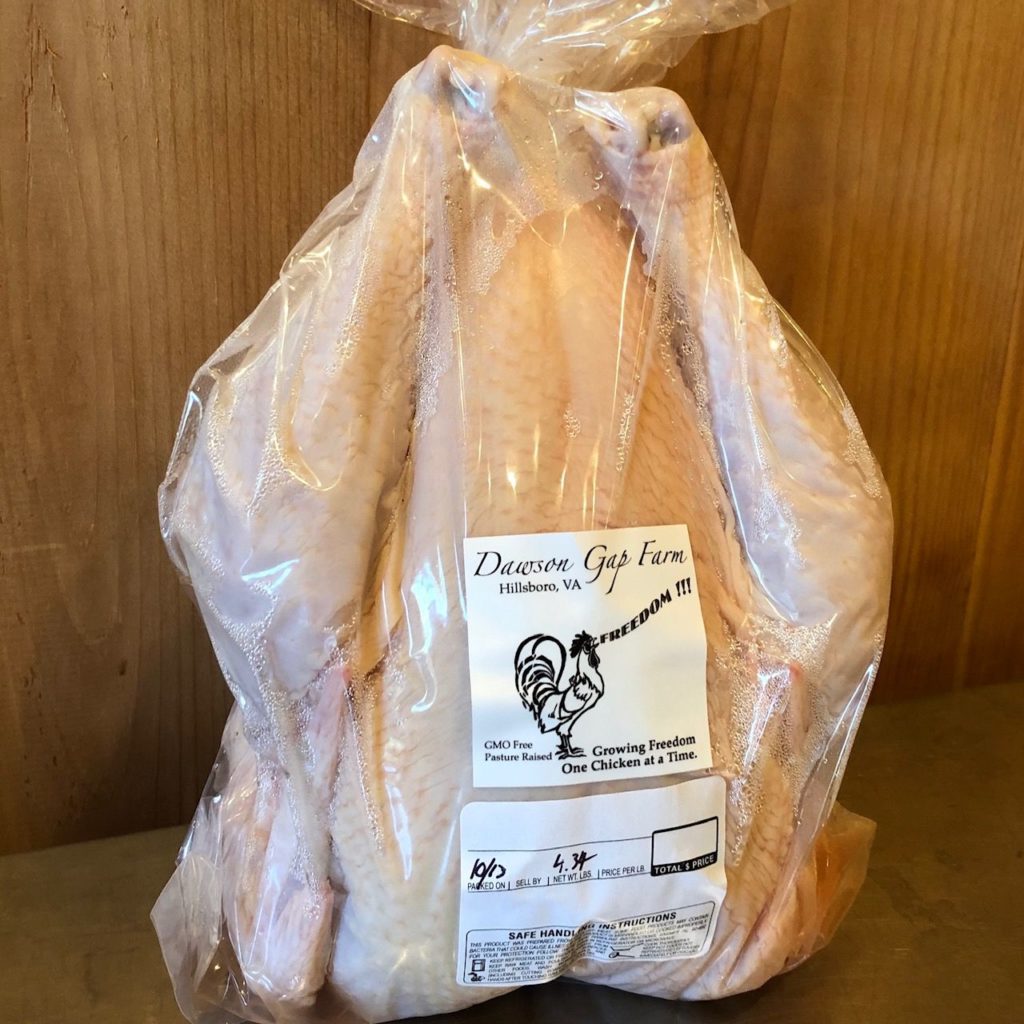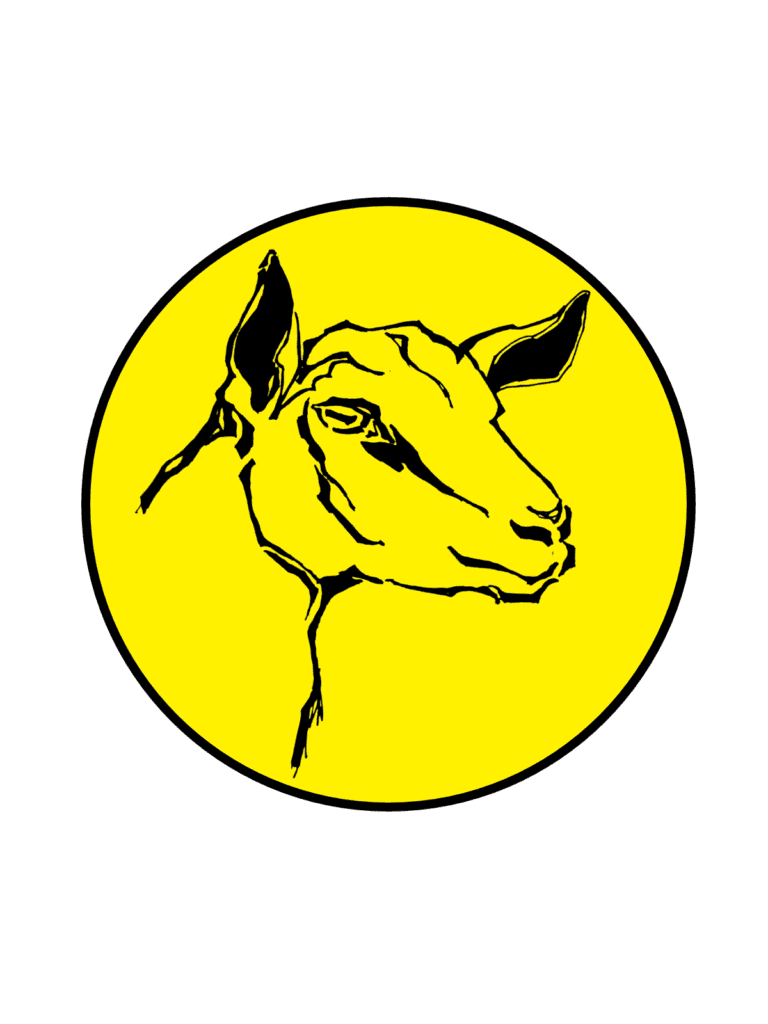Have you ever wondered why it is that natural farming methods, passed down for generations, and proven over thousands of years, are the ones that have to go to the extra time and expense to label their products as such? If you look beyond the past century, it is the industrial farming methods which are new and different to society. Twenty thousand chickens in a barn, pigs that never touch the dirt, a flood of chemical pesticides and herbicides, cross species genetically engineered organisms… These are the abnormal practices in the scope of human history, and as such, consumers should know that a product produced in this manner is different.
Why are food products marketed in the grocery store with little red dairy barns, and the images of small family farms, when the reality is exactly the opposite? If a product produced by a factory farm is so much healthier, nutritious, and desirable to the consumer, why not brag about that fact? Indeed, they could start a government regulated certification program, so customers could be assured that their food was produced in a factory farm, with the most technologically advanced chemicals available. If food raised by industrial agriculture is so good, then people should be reading labels carefully looking for the trusted seal of “Certified Industrial.”
We all know that the “Certified Industrial” label would not be popular. People are not fond of thinking about industrial agricultural methods. Most people choose to believe the false imagery of small family farms, seen on packages in the store, because the price is less. Can you imagine customers paying a premium for food raised by industrial methods? It is absurd. Food corporations do not want the public to pull back the curtain, and see how their food is produced. There is a divide between customers picking up a package in a grocery store, and the knowledge of how that product got into that package… that is the way the food industry likes it.
If the public does learn about the modern food system, they are then willing to pay a premium for an alternative. In a big box store, or supermarket, Certified Organic is the option available to the consumer who wants to buy a product contrary to the industrial model. However, does an organic label remove the curtain between farmer and consumer? Unfortunately, it does not. Many times, the organic label is a signal to the customer to look no further. It is interpreted as a trusted buzz word, that all is safe. But, the certified organic label can be used by some to hang a different curtain of division between farmer and consumer.
Some organic farmers, usually the small, local farmers, are truly organic at heart, and go beyond the letter of the flawed regulations. However, there are some in the larger industry, that use the certified organic label to veil their own industrial farming methods.
- A study by the Cornucopia Institute reported that as many as 80% of organic eggs on the market are raised in high density poultry barns. The only differences from conventional eggs are that these flocks are given organic feed, no medications, and have a small screened in porch area that has capacity for 5% of the flock.
- The USDA had to tighten requirements on organic dairy farmers because of loose interpretations regarding a cow’s “access” to pasture. The stricter standards now require organic dairy farms to have cows on pasture only 4 months out of the year. Despite adoption of these standards, there are still investigative reports of large organic dairies using confined animal feeding operations for thousands of cows with little or no access to grass.
- Organic products are increasingly dependent upon imports of organic soybeans from China and India. Our own family had the experience of buying a can of organic peaches only to find on the back, that it came from China.
The Certified organic label is not a guarantee that global, industrial farming techniques have not been utilized. So what is the discerning family to do? Where do people go in order to step away from the industrial food system? The answer is to go local.
Only at the local level, can a customer have the opportunity to create a relationship with the farmer who is growing their food. It is at the local level, where a family can visit the farm which grows the food they eat. It is at the local level, where one may inspect the manner in which their food is raised. It is at the local level, where a prosperous economy can be developed among neighbors. It is at the local level where the curtain is pulled away and transparency and integrity are able to return to our culture’s food system.
Dawson Gap Farm is all about growing the local food economy. We sell what we use, so we offer Hiland Naturals with our community because Hiland Naturals is all about creating transparency, and integrity in the premium Non-GMO livestock feed they produce. We sell what we ourselves eat, but we also support and promote other farms who are producing good food for our community, and we love to encourage those families who want to provide nutrient dense food for themselves. Thank God for the freedom we have to be able to take matters into our own hands, and to help one another. If the food system gives us certified industrial food, than we will just grow our own!
For us, it is all a part of what we call “Family Based Freedom Farming.” We are growing more than food, we are exercising our God given freedom to choose another path, and align ourselves with God’s Creation. We seek to bring families and communities together as we grow and partake of food with thanks to God. Each chicken in the freezer is one more step closer to a free and independent people, able to secure the blessings of liberty to another generation. It all starts with the choices each one of us make to grow our community, our economy, and our families “one chicken at a time.”





